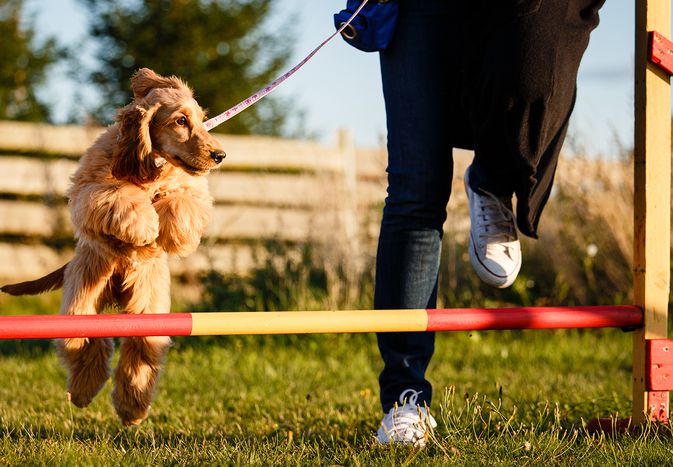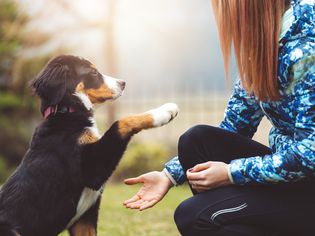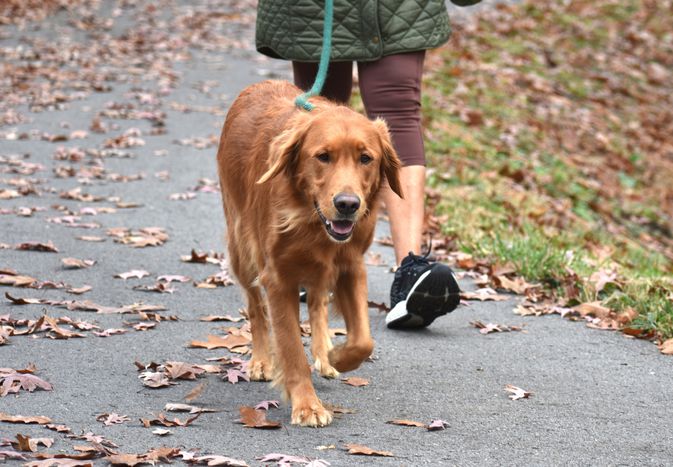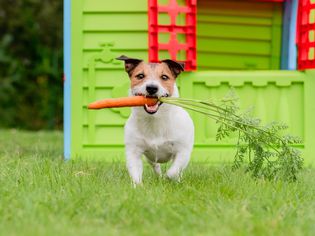Labrador retrievers regularly top the list of most popular dog breeds. These smart, social dogs are known for their amiable temperaments and their patience. Traditionally bred as hunting dogs, Labs also are among the most popular service dogs, acting as guide dogs for blind people and as therapy dogs.
By socializing these dogs early, you can tap into their natural instincts as protectors and companions.
Socialize Puppies
Labs are natural born people pleasers. Introduce your Lab puppy to as many new people and places as possible during the early months of its life. Keep each new meeting and experience positive and upbeat. Doing this will reinforce your Lab's natural tendency to be friendly and accepting of everyone.
If you have young children in the home, be sure to socialize them to the animal as well as the reverse. Although Labs are patient and tolerant, they may still nip at a child who teases or hurts them during play. Make sure everyone knows the boundaries and rules.
Exercise Every Day
Labrador retrievers are high energy dogs, which is part of the reason they are such great pets for active families. But if Labs aren't given sufficient exercise, they can quickly become bored. This often leads to destructive behavior and other common behavior problems, such as barking, chewing, and digging. It's also why Labs are not well-suited for apartment living; they're too big and too active.
Plan on giving your Lab an hour or more of exercise each day. Most Labs love long walks or a game of fetch. These are the perfect way to burn off your Lab's energy.
Start a Basic Obedience Program
Most Labs really love to learn. Take advantage of their innate trainability by starting an obedience program as soon as you bring your Labrador retriever home. You can work on basic obedience commands on your own, or sign up for a dog obedience class with a local dog trainer. Classes are a great way to train your Lab while socializing at the same time.
Since Labs get to be fairly large and have a tendency to pull on the leash, make walking on a loose leash your first priority. You should also teach your Lab to "come," "drop it," and "fetch," so you can take advantage of its natural tendency for retrieving.
Use Positive Reinforcement Training
Their eagerness to learn, playfulness, affectionate natures, and their love of treats make Labrador retrievers fantastic candidates for positive reinforcement dog training. Reward their good behaviors with a small treat, a game, or some cuddle time with you. You'll find your Lab is soon offering you the behaviors you like with little prompting.
If you decide to use treats in your training, remember that Labs have a tendency to become overweight. Use the smallest treats possible to reward behavior, and be sure to reduce the amount of food you're giving at meal times or increase exercise to compensate for the treats.
Plan on a Long Adolescence
One of the most endearing qualities of Labrador retrievers is that they remain very puppy-like long after they've reached adulthood. The downside is that their energy level and tendency to get into mischief continues well into adulthood as well. Therefore, it pays to have behavior management tools handy.
Consider Service Animal Training
All of these qualities make Labs great service animals. The training to become a service animal will vary depending on what the dog will be doing; some are trained to be animal companions to sick children and adults in the hospital, while others are trained to serve as seeing-eye dogs. Others may provide assistance to people with mental illnesses, or behavioral problems.
Check the requirements for licensing and training where you live; some places have more strict rules and requirements for service dogs than others.
Problems and Proofing Behavior
Many Labrador retrievers are happiest and the most well-behaved when they have a job to do. Consider getting involved with a dog sport or training your Lab as a service animal or pet therapy dog.
- Crate train your Labrador so it doesn't have the run of the house when you're not there to supervise
- Provide your Lab with a variety of interesting toys and chews to keep it from getting bored.
- Continue practicing basic obedience commands; it reinforces your Lab's training and provides mental stimulation.
No matter what training you decide on, keeping your Lab busy and active is sure to keep one of those famous Lab smiles on its face.










Comments on " How to Train a Labrador Retriever" :